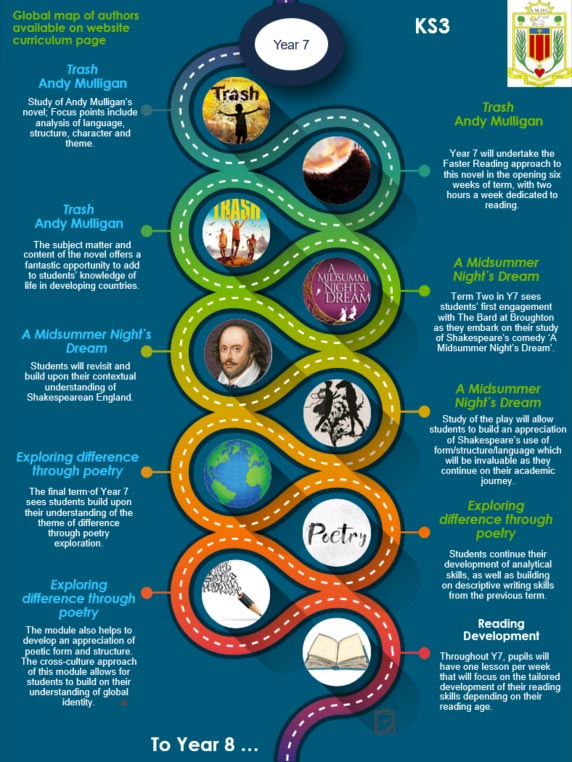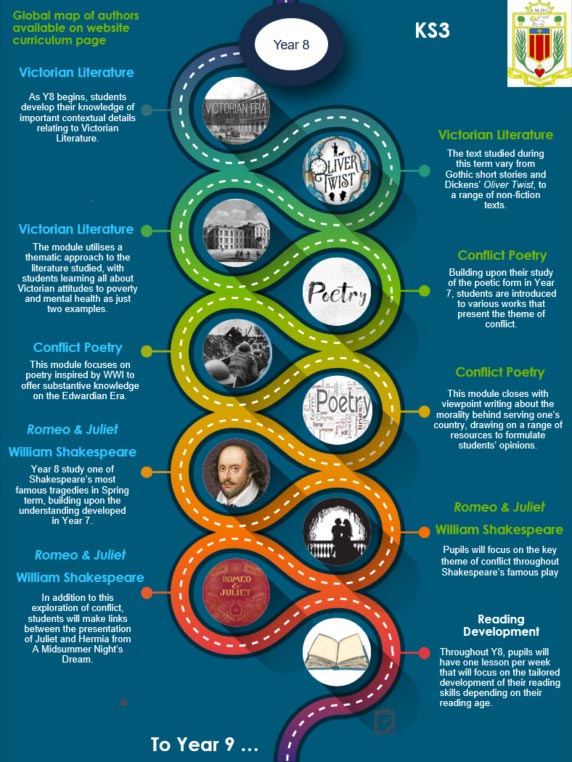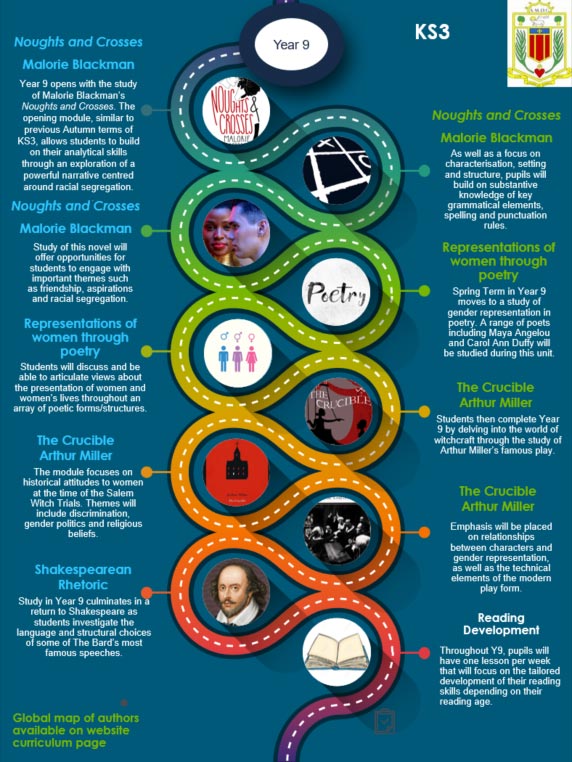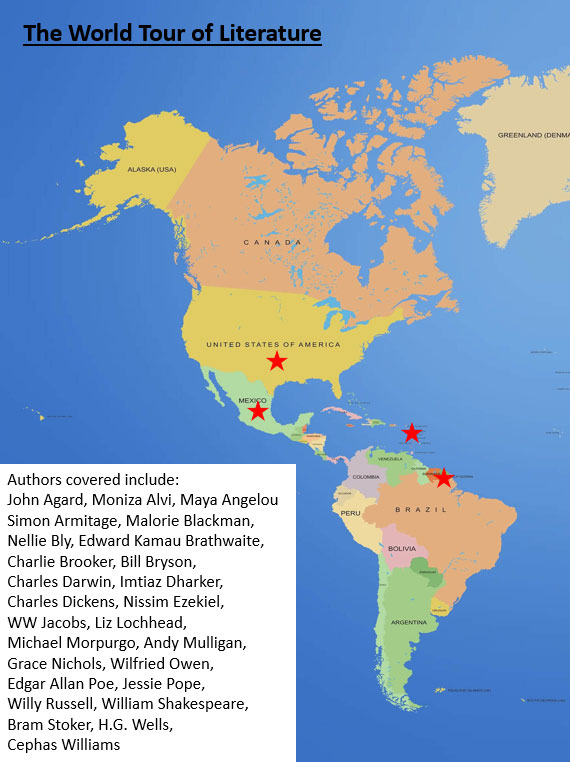English Language
Key Information
Level: A LevelExamination Board: AQA
Subject Leader: Mr Jones
Course Leader: Ms Mcilroy
Entry Requirements
Grade 6 in both English Language and Literature.Why choose this course?
This course requires a love of language exploration and a readiness to investigate a variety of different texts and data from a range of sources. In addition, you will need to demonstrate initiative in personal research and organisational skills and to appreciate that success depends on the enthusiasm with which you consolidate lessons with personal investigation. Willingness and confidence in applying linguistic frameworks to texts is essential.Prospects
This is a highly regarded qualification, which will be acceptable for any course of study at degree level. It is particularly suitable for students who wish to progress to journalism, teaching, publishing, the media, speech therapy, linguistics or any career which requires a high level of literacy. It is an excellent preparation for the demands and study skills needed for higher education.
Course Content
The AQA specification:
Offers opportunities for students to develop their subject expertise by exploring key language concepts and engaging with a range of texts and discourses.
Explores the study of English language both as a medium of communication and as a topic in its own right, with an emphasis on the ability of students to pursue lines of enquiry, analyse texts produced by others and debate different views.
The methods of analysis appropriate to the fields of English language/linguistics underpin all the elements of the specification, and these are applied to distinctive topic areas.
The course combines examination and coursework components
Course Topics
Language and the individual - including detail textual analysis
Language varieties - looking at the different aspects of language according to class, race, gender, age and region
Child acquisition of language
Language investigation
Original Writing
Course Opportunities/ Activities
This is a highly academic course, which teaches you a variety of critical analysis and thinking skills. All of these skills are much sought after by universities and employers. Students will have the opportunity to study a variety of non-fiction texts, learn about the history and development of the English Language and students will have the opportunity to explore the important role that language plays in creating meaning within news articles.
Support and Challenge
Students will develop their written and analytical skills in a detailed and conceptual way. Students will also develop their knowledge of English grammar and they will study it to a high level. Students are provided with essay writing guides, which ensure that students know how to access the higher grade. There is also a focus on analysing what a text is suggesting about modern society and culture.
Student Comment
I would encourage you to pick English Language A- Level because it explores many different aspects of the English Language. The knowledge that I have gained is interesting and the course also helps to develop your creativity. Another benefit of this course is that it helps you with your other subjects in terms of your analytical skills.
English Literature
Key Information
Level: A LevelExamination Board: AQA
Subject Leader: Mr Jones
Entry Requirements
Grade 6 in both English Language and Literature.Why choose this course?
This course requires a love of reading and a readiness to investigate, not only the set texts, but a wide range of supporting material. In addition, you will need to demonstrate initiative in personal research and organisational skills and to appreciate that success depends on the enthusiasm with which you consolidate lessons with personal investigation. Willingness and confidence in forming your own opinion and to express it with conviction are also necessary requirements.Prospects
This is a highly regarded qualification, which will be acceptable for any course of study at degree level. It is particularly suitable for students who wish to progress to journalism, teaching, publishing, the media or any career which requires a high level of literacy. It is an excellent preparation for the demands and study skills needed for higher education.
Course Content
Students will follow the AQA specification A.
This specification has a clear philosophy of reading and meaning and aims to encourage pupils to develop as an informed, independent reader and critic of literary texts. This will be achieved through a course of wide and close reading. This course provides pupils with maximum opportunities for both coursework and examination. The non-exam assessment component provides opportunities for students to pursue their own areas of interest and develop personal and independent learning skills. The variety of examination assessment styles allows students to develop a wide range of skills, such as the ability to read critically, analyse, evaluate and undertake independent research which are valuable for both further study and future employment.
Aims of the course
On this course you should develop your interest in and enjoyment of literature and literary studies as you:
- Read widely and independently set texts and wider reading poetry, drama and prose texts
- Engage creatively with a substantial body of texts and ways of responding to them
- Develop and apply your knowledge of literary analysis and evaluation in speech and writing
- Explore the contexts and others' interpretation of the texts you are reading
Course Opportunities/ Activities
This academic A-Level course is fantastic preparation for university study, given its seminar-style sessions and the importance of independent learning/organisation. Students will have an opportunity to experience a wide range of literary works, spanning the breadth of the last four centuries. Opportunities to attend events such as theatre trips and writer's workshops will always be taken if available.
Support and Challenge
Given the challenging nature of the course, staff forge strong relationships with students and are always on hand to offer support and guidance through school communication systems. Students will develop key knowledge of academic writing components, which will help to support them across their post-16 studies and the consistently successful outcomes achieved in the subject testify to the fact that students are always challenged to make those additional steps in their progress.
Student Comment
I would encourage you to choose English Literature because not only are the texts we study interesting ,but the wider knowledge and conversations in class that come along with it are too.
I liked GCSE English Literature, but I was sceptical when putting it down as one of my A-level options. I'm really glad that I did choose it, as I've enjoyed studying various texts and exploring alternative readings. Also, being able to tailor coursework to my liking has been extremely refreshing. English Literature relates so well to my other subjects and I'm able to use information from History and Psychology to support my arguments.
I chose A-Level English Literature because I really enjoyed English at GCSE, the texts at A-Level are interesting and also varied from poetry to novels. I love the variety of texts as each lesson there is something new to learn.

 By studying English, we intend for pupils to develop an enjoyment of reading and a confident grasp of both written and spoken language. In a wider sense, we also endeavour to build on, through careful selection of texts, important Christian values such as empathy for those struggling in a range of different circumstances. Students benefit from the development of their analytical skills - allowing them to decode language and infer/deduce meaning. In KS3, our aim is to encourage pupils to become global citizens through their introduction to literature from a wide range of cultures in Year 7, developing their understanding and acceptance of people from all walks of life. This study also provides pupils with examples of 'present day' cultural differences; in a KS3 curriculum which covers key elements of society from the past, present and potential future across a range of cultural settings. This then creates the foundation for continuing study, providing our students with a wealth of Literary experience, through consistent interleaving of substantive and disciplinary knowledge. This, in turn, allows pupils to enjoy their learning, as well as prepare them for examinations at Key Stage 4 and 5.
By studying English, we intend for pupils to develop an enjoyment of reading and a confident grasp of both written and spoken language. In a wider sense, we also endeavour to build on, through careful selection of texts, important Christian values such as empathy for those struggling in a range of different circumstances. Students benefit from the development of their analytical skills - allowing them to decode language and infer/deduce meaning. In KS3, our aim is to encourage pupils to become global citizens through their introduction to literature from a wide range of cultures in Year 7, developing their understanding and acceptance of people from all walks of life. This study also provides pupils with examples of 'present day' cultural differences; in a KS3 curriculum which covers key elements of society from the past, present and potential future across a range of cultural settings. This then creates the foundation for continuing study, providing our students with a wealth of Literary experience, through consistent interleaving of substantive and disciplinary knowledge. This, in turn, allows pupils to enjoy their learning, as well as prepare them for examinations at Key Stage 4 and 5.




